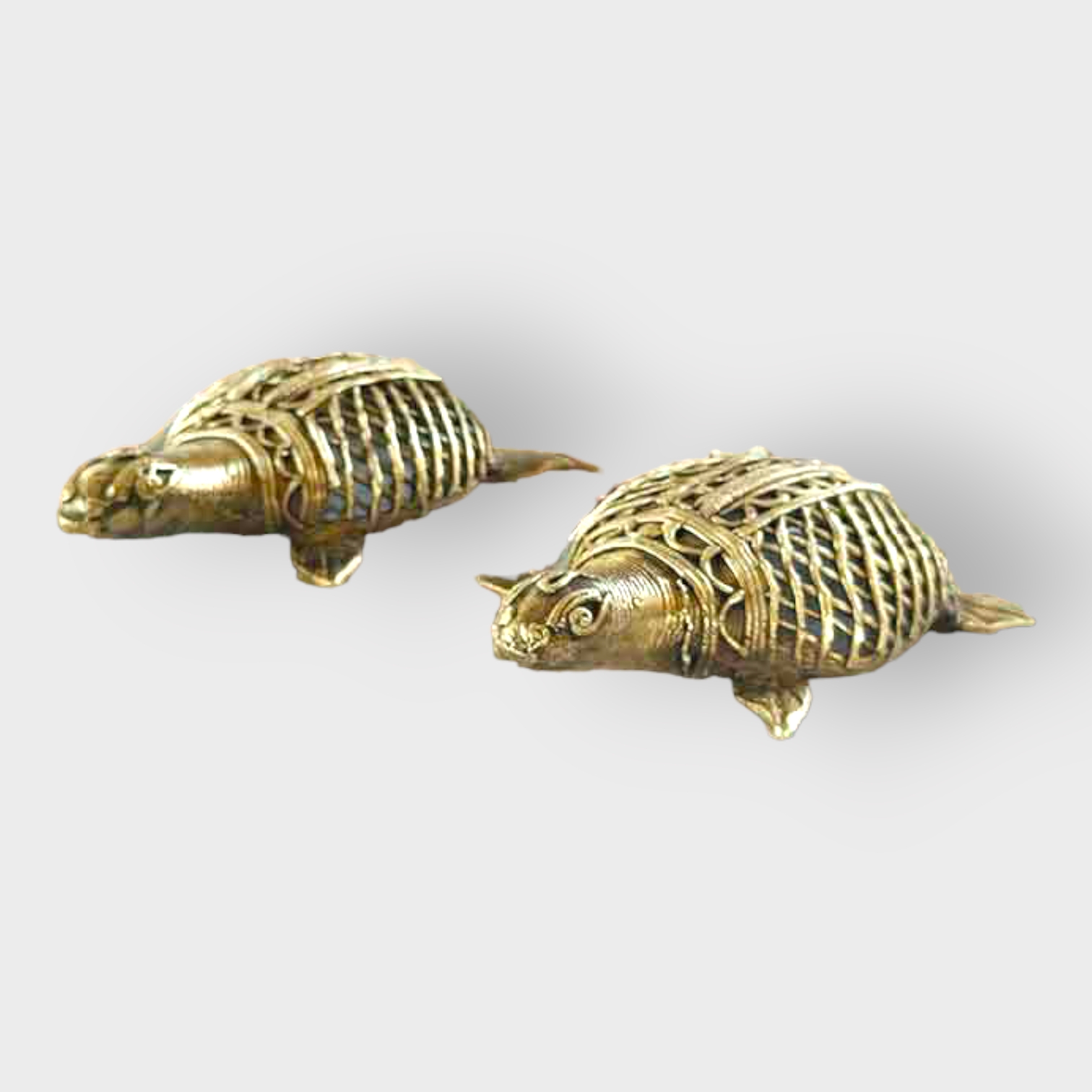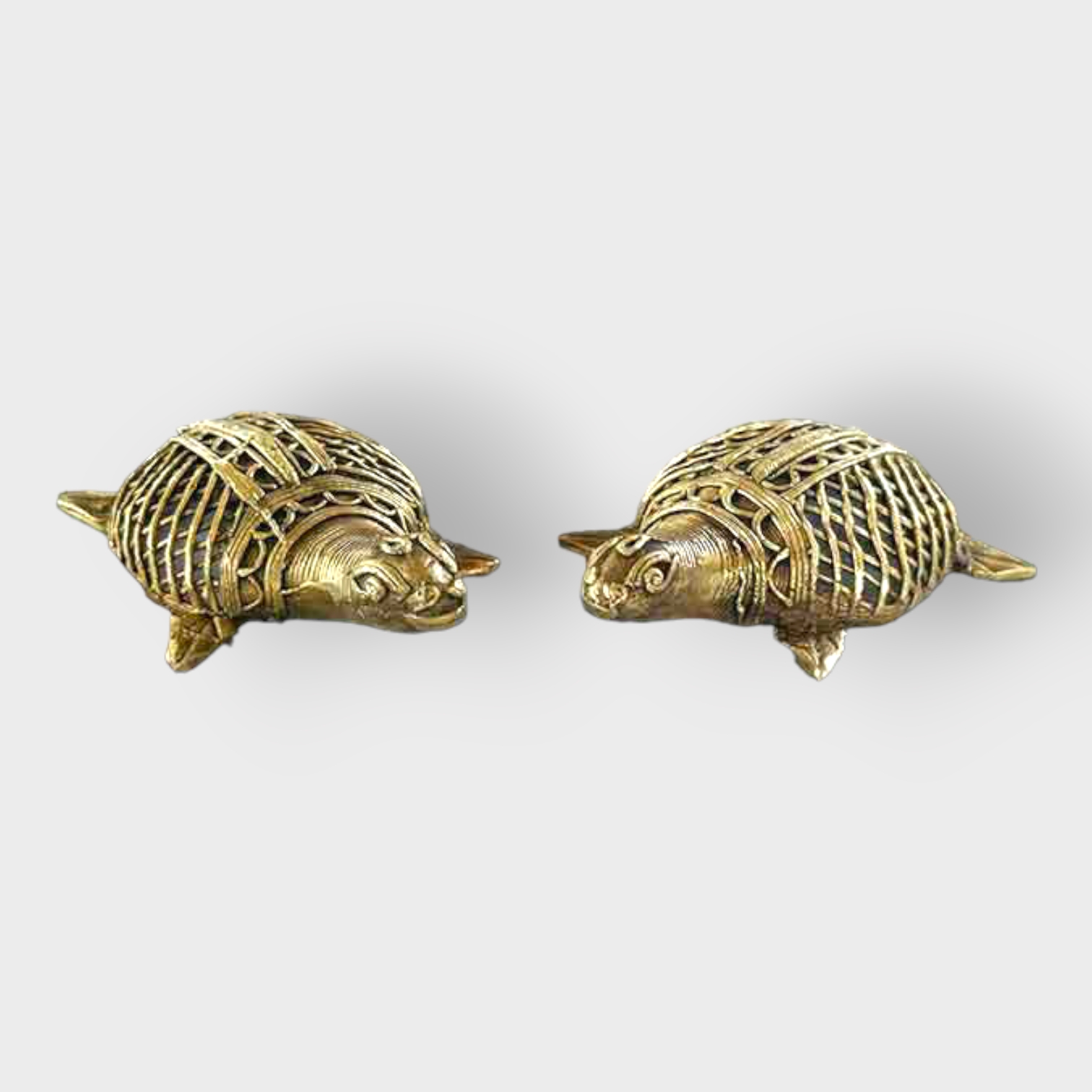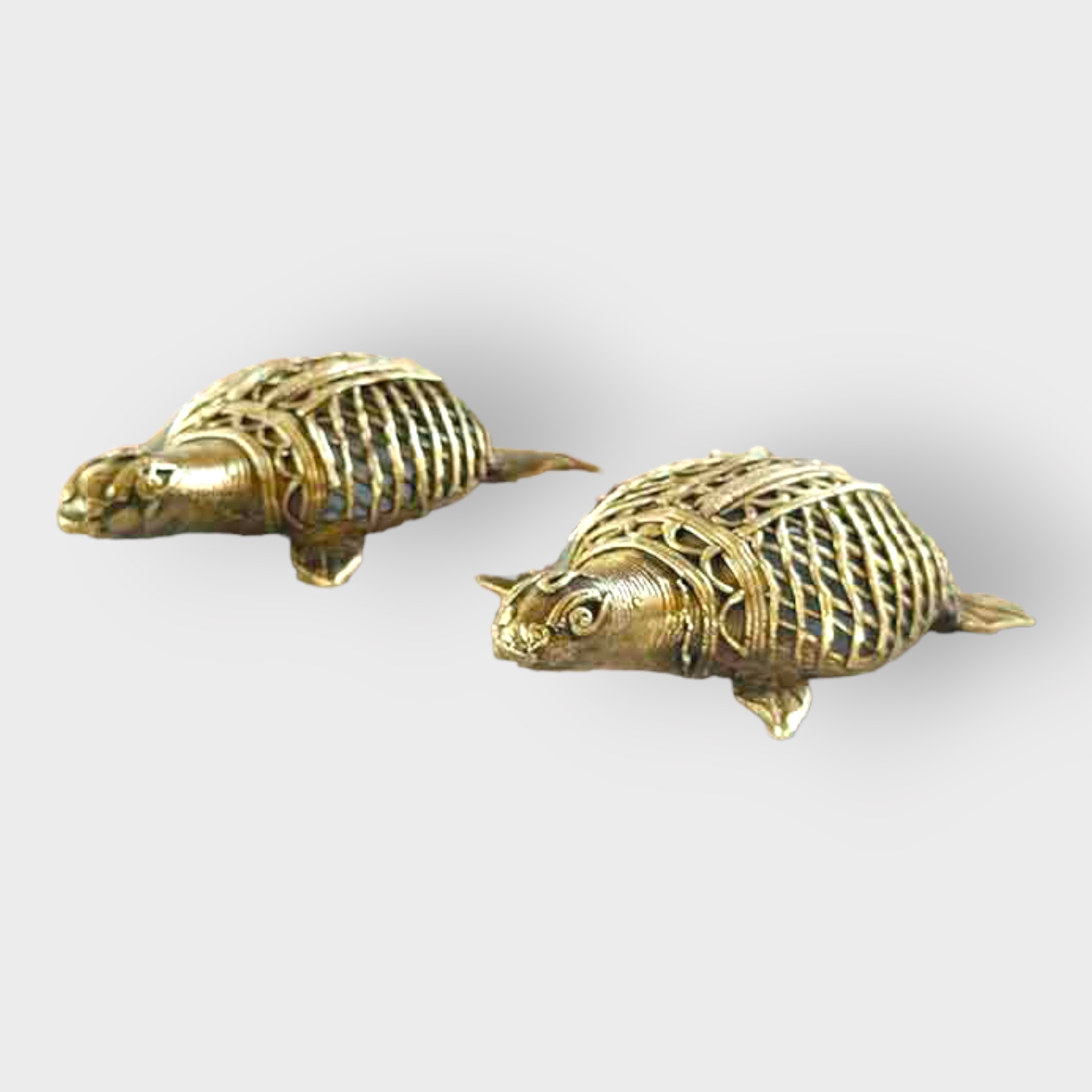Brass Tortoise Set of 2 in Dokra Art
The Bengal Dokra Brass Tortoise Set of 2 Home Decor pieces epitomizes the rich cultural heritage of Bengal, India. Crafted using traditional Dokra art techniques, these exquisite brass tortoises showcase intricate detailing and skilled craftsmanship. Symbolizing longevity, stability, and prosperity, these pieces add a touch of elegance and cultural charm to any home decor. Handmade by skilled artisans, each tortoise exudes a unique character, making them perfect for both aesthetic appeal and cultural appreciation in any living space.
- Need Assistance? Feel free to reach us at support@giheritage.com or contact +91-7483932390 for assistance.
- Note: Although an artisan meticulously crafts their work with great attention to detail, there may still be some minor difference present, showcasing the inherent imperfections that add a touch of uniqueness to each piece. Kindly ignore such minor differences and slight variations in color, weight and dimensions as it adds to the uniqueness of product. Each piece is a one-of-a-kind treasure, making your purchase truly special.
- • GI Origin : West Bengal
- • Product Material : Brass
- • Size : 4 x 3 inch
- • Weight : ~ 180 Grams
Description of Goods:
Bengal Dokra craft is made using the technique of Cire-Perdue or the lost-wax process of metal casting. This traditional craft involves the use of wax and resin extracted from the Sal tree, along with brass metal. Dokra artists in West Bengal create a variety of items, including idols of deities, puja accessories, and decorative pieces. The traditional themes of these cast metal sculptures include images of Hindu or tribal gods and goddesses, bowls, figures of people or deities riding elephants, musicians, men riding horse figures, and various animals and birds.
Geographical Area of Production:
Bengal Dokra craft is predominantly found in the tribal regions of Bankura, Bardhaman, and Purulia in West Bengal. Specifically, villages such as Dariyapur in Bardhaman, Bikna, Rampur in Bankura, and Manbazar in Purulia are known for their Dokra artisans.
Proof of Origin (Historical Records):
The districts of Bardhaman, Bankura, and Purulia have a rich cultural history dating back centuries. The craft of Dokra metal casting has been practiced in these regions for over 4,000 years. Historical records trace the lineage of Dokra artisans and their contributions to the cultural heritage of West Bengal.
Method of Production:
The production of Bengal Dokra craft involves the intricate process of lost-wax casting. Dokra artists first create a clay core, which serves as the base for the final artifact. They then use a mixture of wax and resin extracted from the Sal tree to sculpt the desired shape and details. Next, a layer of very fine clay is applied to the wax model, which is then sun-dried and covered with a second layer mixed with sand. The mold is fired to melt and remove the wax, leaving behind a cavity. Molten brass is poured into this cavity and allowed to cool, forming the final metal sculpture. The artifact is then finished by removing the clay mold and polishing the brass surface.
Uniqueness:
The uniqueness of Bengal Dokra craft lies in its intricate production process, craftsmanship, and choice of materials. Each piece is hand-made and distinct, showcasing the skill and creativity of the artisans. The use of hollow casting technique and Dhuna wires for detailing add to the unique charm of Dokra sculptures. Additionally, the use of household brass utensils as raw material gives the artifacts a distinct yellow color, further enhancing their appeal.

 INR
INR USD - $
USD - $
 CAD - Can$
CAD - Can$
 EUR - €
EUR - €
 GBP - £
GBP - £
 SGD - S$
SGD - S$
 AUD - A$
AUD - A$
 MYR - (RM)
MYR - (RM)













